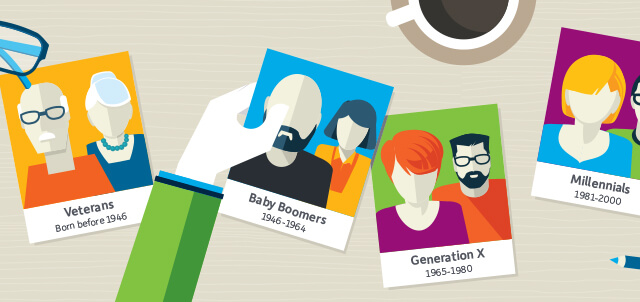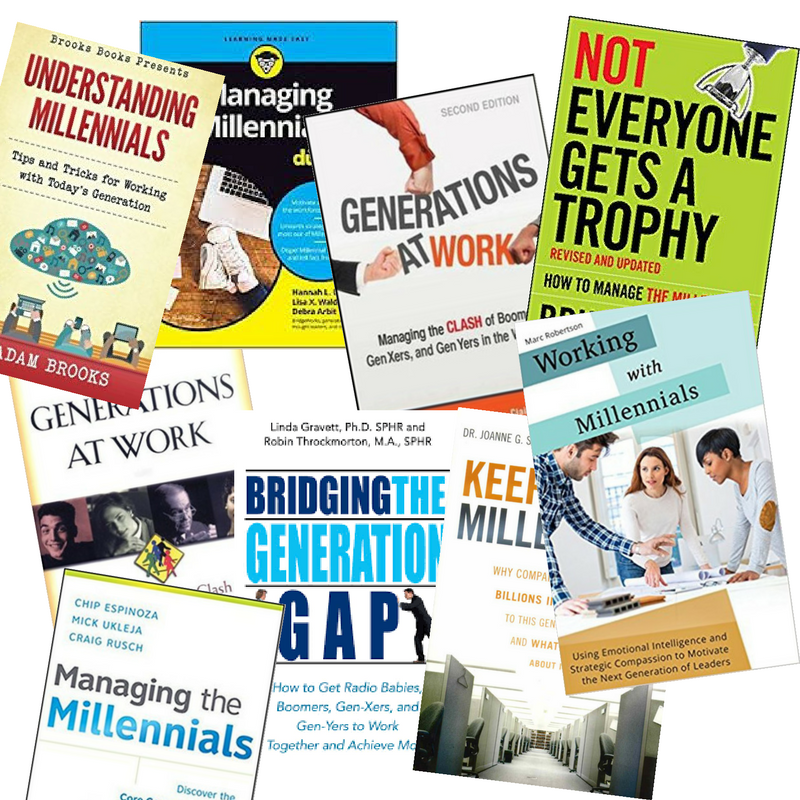 This is what you get by typing »managing generations in the workplace« in Google. If you take out the words »in the workplace« the number rises to a whopping 145 million search results!
This is what you get by typing »managing generations in the workplace« in Google. If you take out the words »in the workplace« the number rises to a whopping 145 million search results!
All from how to manage different generations, how to motivate them, how to talk to them, how to understand them, etc. Why is it then that this nut hasn't been cracked yet and new articles on the subject matter keep popping up on a daily basis?
What if it's just not that simple?
"To effectively manage people, you need to focus on people. One by one."
People born in roughly the same era share certain social experiences, collective memory so to say, and do indeed show certain 'generational traits', but is this really enough to apply these generalisations to people management?
 When I first came across this talk about generations a couple of years ago, I too was attracted to its simplicity. It seemed really logical and I saw people making somewhat humorous presentations on this topic, trying to make it more appealing to the audience.
When I first came across this talk about generations a couple of years ago, I too was attracted to its simplicity. It seemed really logical and I saw people making somewhat humorous presentations on this topic, trying to make it more appealing to the audience.
Not long after I got a job as a youth employment counsellor I too gave a presentation to my colleagues about different generations that were our clients. I still believe the topic had some relevance since we were discussing adapting our services to better fit more tech savvy, younger clients.
So why was this topic relevant for me then and not so much now?
Last year I changed jobs and became a learning consultant. I am no longer trying to change services to better fit its users. My focus now is helping people make a change in their life, to inspire them to think differently. Helping people reach their potential, to be better, more motivated, productive, happier and more successful. And I believe real change can only be achieved on a person-basis.
For example, Generation Y, to which I apparently belong, are those born roughly between 1980 and 2000 (please note that these generation-limits make most sense to people in the western part of the world). Generational-based people management implies that anywhere in the world someone who is just finishing high school is to be inspired, motivated and lead in the same way as someone with already nearly a decade of work experience, most likely at a very different point in life. The same example can be made for any other generation.
Do you agree?
I believe it is overly simplified and more – it creates unnecessary gaps and differences between people, grouping and labelling them as members of a generation instead of a team. This doesn't do much good for the team spirit.
"Focusing on generations in managing people creates unnecessary gaps and differences between them, grouping and labelling them as members of a generation instead of a team."
To effectively manage people, you need to focus on people. One by one. Focus on what motivates them, what really matters to them, what makes them feel good. Help them develop a better sense of self-awareness, because only through really understanding themselves will they ever be able to better understand others.
This will give you a good foundation to also manage and develop teams. Building bridges instead of widening gaps. Learning individual differences, understanding them in order to work together more efficiently. This is what will in turn lead to building high performing teams.
As a learning consultant I see great results and real changes being made without focusing on generational differences. Our workshop participants may come from the same or different generations – it makes no difference because we will always focus on creating change from within.
This kind of change is the only real change.




